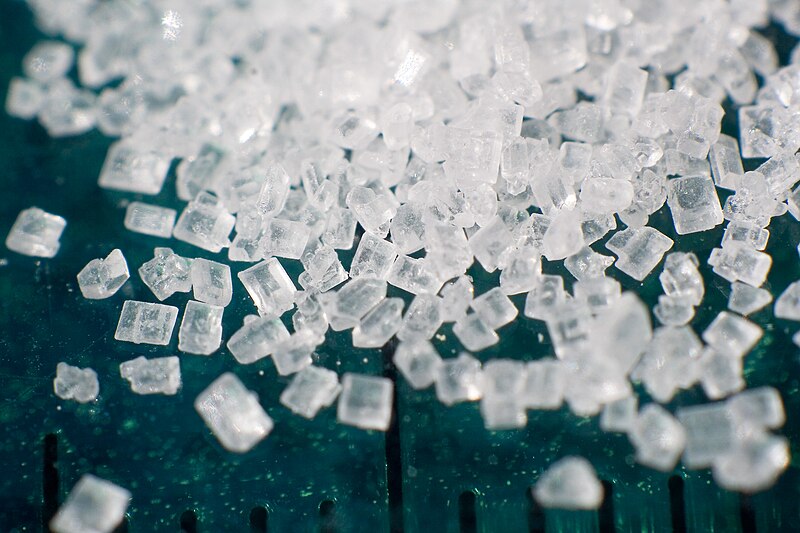.
 |
| http://en.wikipedia.org/wiki/Sugar |
http://ajph.aphapublications.org/doi/abs/10.2105/AJPH.2014.302151
Quotes:
Objectives. We tested whether leukocyte telomere length maintenance, which underlies healthy cellular aging, provides a link between sugar-sweetened beverage (SSB) consumption and the risk of cardiometabolic disease.Notice the lack of correlation for non-carbonated sugar-sweetened beverages!
...
Results. After adjustment for sociodemographic and health-related characteristics, sugar-sweetened soda consumption was associated with shorter telomeres (b = –0.010; 95% confidence interval [CI] = −0.020, −0.001; P = .04). Consumption of 100% fruit juice was marginally associated with longer telomeres (b = 0.016; 95% CI = −0.000, 0.033; P = .05). No significant associations were observed between consumption of diet sodas or noncarbonated SSBs and telomere length.
Conclusions. Regular consumption of sugar-sweetened sodas might influence metabolic disease development through accelerated cell aging. (Am J Public Health. Published online ahead of print October 16, 2014: e1–e7. doi:10.2105/AJPH.2014.302151)
More on the carbohydraty poison, today's news. Skim milk anyone?
Quote:
In women the adjusted mortality hazard ratio for three or more glasses of milk a day compared with less than one glass a day was 1.93 (95% confidence interval 1.80 to 2.06). For every glass of milk, the adjusted hazard ratio of all cause mortality was 1.15 (1.13 to 1.17) in women and 1.03 (1.01 to 1.04) in men. For every glass of milk in women no reduction was observed in fracture risk with higher milk consumption for any fracture (1.02, 1.00 to 1.04) or for hip fracture (1.09, 1.05 to 1.13). The corresponding adjusted hazard ratios in men were 1.01 (0.99 to 1.03) and 1.03 (0.99 to 1.07). In subsamples of two additional cohorts, one in males and one in females, a positive association was seen between milk intake and both urine 8-iso-PGF2α (a biomarker of oxidative stress) and serum interleukin 6 (a main inflammatory biomarker).
Interestingly, detrimental effects seem to be related to the milk lactose contents rather than fat or proteins, because consumption of milk products that are high in fat and lower in lactose, such as fermented milk, cheese or cream, seem to correlate with more favorable biomarkers profile.
Comparing milk with other dairy products
Particularly noteworthy is that intake of fermented milk products such as yogurt and soured milk and cheese were associated with lower rates of fracture and mortality. Furthermore, we observed a positive association only between milk intake and markers of oxidative stress (urine 8-iso-PGF2α) and inflammation (serum interleukin 6). Previously, we found a negative relation between bone mineral density and 8-iso-PGF2α.42 63 Interleukin 6 seems to be causally related to cardiovascular disease64 and may influence bone loss and osteoporosis.65 Importantly, those who consume high amounts of non-fermented milk have a more non-favourable cardiovascular risk factor profile, with higher blood pressure, lower high density lipoprotein cholesterol levels, and higher insulin resistance.18 In contrast, intake of cheese and fermented milk products is related to higher high density lipoprotein cholesterol levels, less insulin resistance, and a lower risk of myocardial infarction.18 22 23 24 In addition, a recent small randomised cross over study indicated that the intake of a fermented dairy diet seemed to provide a more favourable biomarker profile than that of a non-fermented dairy diet.66





